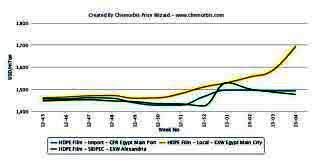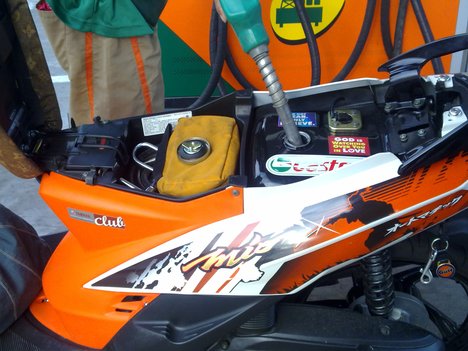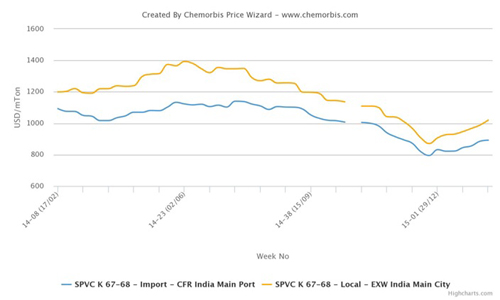A jump in oil prices in recent weeks on hopes of a global economic recovery is spurring oil companies to move on takeover opportunities before assets become too expensive again.
On Tuesday, UK-listed oil Heritage Oil (HOIL.L) said it was merging with Turkey’s Genel Energy to create a $5.5 billion group focused on Iraq’s Kurdistan region.
On Monday, Swiss-based Addax Petroleum (ADX.TO), which has a market value of around $5 billion, said it had received a takeover approach, and last week Dubai’s Emirates National Oil Company said it wanted to buy the 48 percent of Dragon Oil (DGO.L) it didn’t already own.
“Confidence has returned to the oil and gas sector,” Paul Atherton, Heritage’s chief financial officer, told reporters on a conference call on Tuesday.
As oil prices fell through the second half of last year, some executives feared they might soon appear to have overpaid for any asset they bought.
The rebound in prices from around $45/barrel at the end of 2008 to almost $70/bbl now has reduced this fear.
Meanwhile, many oil companies still have strategic gaps in their portfolios and state-controlled Asian companies such as China’s Sinopec (600028.SS), which the South China Morning Post reported was behind the Addax approach, retain their remit to secure energy supplies for the home markets.
“Appetite for oil assets remains high,” Theepan Jothilingam, oil analyst at Morgan Stanley said in a reach .
The rebound in asset prices has made acquisitions more expensive — Dragon Oil’s shares have more than doubled since the beginning of the year.
However, the traded price of oil fields and companies usually lags crude moves, so companies could find themselves having to pay more later if they wait and oil prices return to the highs of almost $150/barrel seen in July 2008.
The DJ STOXX European oil and gas sector index .SXEP has risen just 16 percent so far this year compared to a 56 percent rise in the oil price.
BIGGER DEALS
Apart from the announced deals and talks, bankers and analysts say there is considerable discussion about potential M&A and that executives are increasingly willing to consider bigger transactions.
The last quarter of 2008 and the first quarter of this year saw a rash of acquisitions but these were generally deals worth up to a few hundred million dollars, involving targets which had entered financial difficulty.
London-based Premier Oil’s (PMO.L) acquisition of the North Sea unit of Canada’s troubled Oilexco Inc OIL.TO for $505 million, from administrators was among the largest of such buys.
Now, multi-billion dollar deals are on the table, helped by a loosening in credit markets.
“Three to four months ago, you would have had real difficulty in getting financing for these kinds of deals, said Colin Morton, fund manager at Rensburg Fund Management.
“Now, if you have a sensible idea, there’s a willingness to provide finance,” he added.
However, few predict another round of the kind of mega-mergers that transformed the oil industry at the end of the 1990s, when Exxon (XOM.N) bought Mobil and Britain’s BP (BP.L) bought Amoco and Arco.
This is partly because industry executives and investors are not convinced further consolidation would offer enough cost savings or synergies, and partly because such tie-ups would likley face opposition from anti-monopoly regulators.
IRAQ-DRIVEN
Another reason for the sudden flurry of activity is improved cooperation between the Baghdad government and Iraq’s largely autonomous Kurdish region, said one hedge fund manager who trades around M&A transactions.
“People are focusing more on Kurdistan. The strategic investors are starting to see the upside there,” the hedge fund manager, who spoke on condition of anonymity, said.
Exports of crude from Kurdistan started last week, after being blocked for years as the central government and the Kurdish Regional Government (KRG) fought over revenue sharing.
Until exports were possible, producers were limited to supplying the Kurdish market which consumes only a few thousand barrels per day.
Addax, Heritage and Genel Energy all have extensive interests in Kurdistan.
Despite the progress, uncertainties still surround Kurdish assets as no mechanism has been agreed between Baghdad and the Kurdish authorities on how companies will be compensated for the oil they put into Iraq’s state-controlled export pipeline system.
Other companies with interests in Kurdistan include privately-owned Perenco, Austria’s OMV and Hungary’s MOL.
The recent rash of deal talks could spur interest in explorer Soco International (SIA.L), dealers said.
The company said in October it had received a bid approach for most of its assets but analysts said falling oil prices would make a deal difficult. Soco said in March that the talks had cooled.
Source: news.chemnet.com







